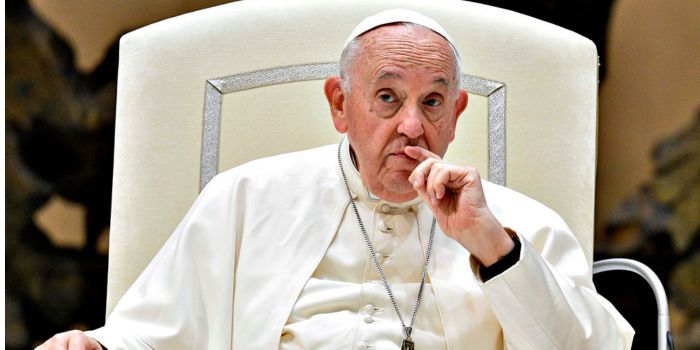The leader of the Roman Catholic Church, Pope Francis, has characterized Africans as a "special case" in relation to their reception of his stance on blessing LGBTQ+ couples. In an interview published on Monday, January 29, in the Italian publication La Stampa, the Pope defended his position on blessing irregular and same-sex couples, acknowledging the unique perspective held by Africans.
Pope Francis explained that the intolerance towards homosexuality in Africa is influenced by cultural factors, making the continent a unique case when it comes to accepting LGBTQ+ communities. He noted, "Those who protest vehemently belong to small ideological groups. A special case are Africans: for them, homosexuality is something 'bad' from a cultural point of view, and they don't tolerate it."
During the interview, the Pope clarified that his previous directive on the Roman Catholic Church aimed to unite rather than divide the church. He expressed hope that critics of his decision to bless non-heterosexual couples would gradually come to accept it. "But in general, I trust that gradually everyone will be reassured by the spirit of the 'Fiducia supplicans' declaration of the Dicastery for the Doctrine of the Faith: it aims to include, not divide," emphasized Pope Francis.
In his defense of the directive, Pope Francis highlighted that it was intended to bless the faithful of the church and not the union itself. "The Gospel is to sanctify everyone. Of course, as long as there is goodwill. And it is necessary to give precise instructions on the Christian life (I underline that it is not the union that is blessed, but the people)," he stated.
Pope Francis criticized the idea of categorizing sinners who can enter the Church, emphasizing that we are all sinners. "But we are all sinners: why then draw up a list of sinners who can enter the Church and a list of sinners who cannot be in the Church? This is not the Gospel," added Pope Francis.
In a previous directive, the Pope had instructed Catholic Priests to bless same-sex marriages, a decision met with opposition, especially from Priests in Africa. In Kenya, certain Bishops took a stand against the Pope's directive, banning the blessing of same-sex marriages within their Dioceses.

